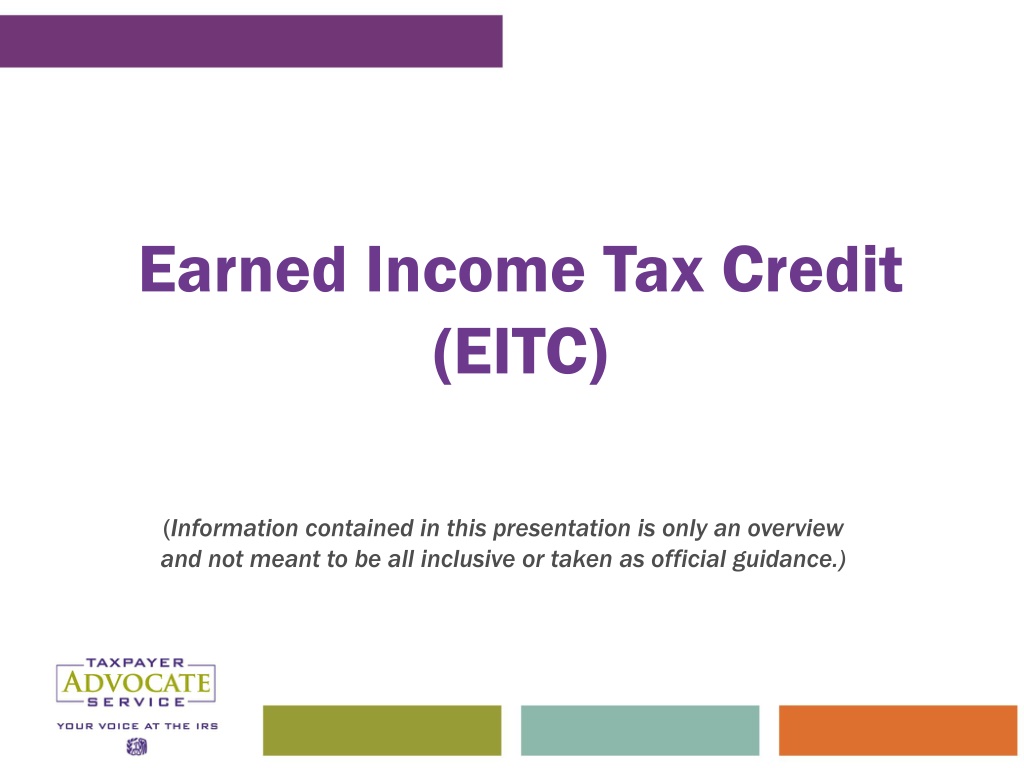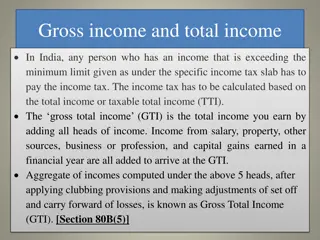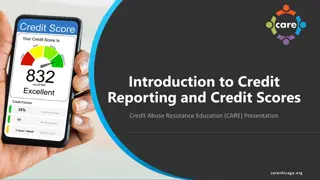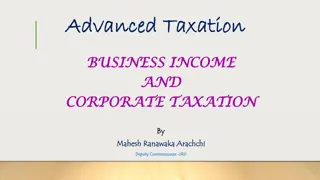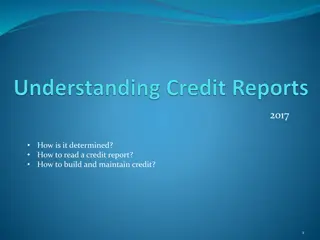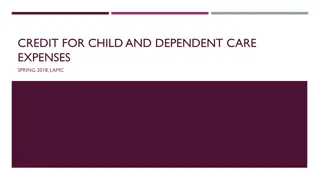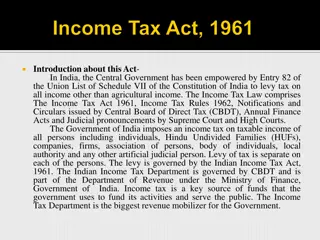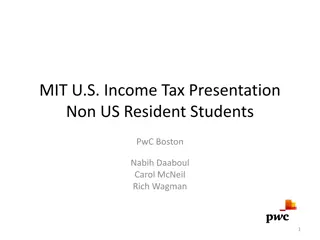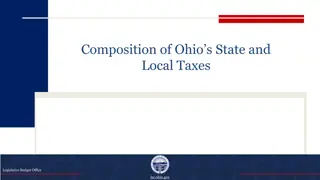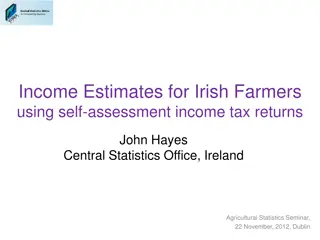Understanding the Earned Income Tax Credit (EITC)
The Earned Income Tax Credit (EITC) is a valuable financial benefit for working individuals and families. It provides a boost to those who meet specific requirements, such as income limits, filing status, and having qualifying children. Understanding what constitutes taxable earned income, as well as income that is not considered earned for EITC purposes, is crucial to avoid common errors when claiming the credit. Utilizing resources like the EITC Assistant and guidance from the IRS can help determine eligibility and ensure a correct claim.
Uploaded on Sep 24, 2024 | 0 Views
Download Presentation

Please find below an Image/Link to download the presentation.
The content on the website is provided AS IS for your information and personal use only. It may not be sold, licensed, or shared on other websites without obtaining consent from the author. Download presentation by click this link. If you encounter any issues during the download, it is possible that the publisher has removed the file from their server.
E N D
Presentation Transcript
Earned Income Tax Credit (EITC) (Information contained in this presentation is only an overview and not meant to be all inclusive or taken as official guidance.)
What is the Earned Income Tax Credit? The Earned Income Tax Credit (EITC) is an important benefit providing a financial boost to working individuals and families.
Earned Income Tax Credit (EITC) Requirements Always check the income limits first or use the EITC Assistant tool Must have SSNs for all qualifying children before due date of return (including extensions) Filing status: MFJ, HOH, QW or Single No MFS U. S. Citizen or Resident Alien Can t file Form 2555 or Form 2555-EZ and claim credit Meet rules for those without a qualifying child OR have a qualifying child
Taxable Earned Income (for EITC) Includes: Wages, salaries, tips, and other taxable employee compensation; Union strike benefits; Disability retirement benefits received prior to minimum retirement age; Net earnings from self-employment if: o You own or operate a business or a farm or o You are a minister or member of a religious order o You are a statutory employee and have income.
Income That is Not Considered Earned Income (for EITC) Includes: Pay received for work while an inmate in a penal institution Interest and dividends Pensions or annuities Social security Unemployment benefits Some alimony payments Child support
Common EITC Errors Claiming a child who does not meet residency or relationship requirements Reporting income or expenses, particularly on Schedule C, incorrectly Filing as single or head of household when married Name and Social Security number errors Visit IRS.gov, at: https://www.irs.gov/credits- deductions/individuals/earned-income-tax-credit/watch-out-for- these-common-eitc-errors
EITC Main Resources Use the EITC Assistant, on IRS.gov, to see if you qualify: https://www.irs.gov/credits- deductions/individuals/earned-income-tax- credit/use-the-eitc-assistant TAS s EITC Get Help page: https://www.taxpayeradvocate.irs.gov/get- help/credits/claiming-the-eitc/ EITC page(s) on IRS.gov: https://www.irs.gov/credits- deductions/individuals/earned-income-tax- credit
Thank you for attending today s presentation! https://taxpayeradvocate.irs.gov/
